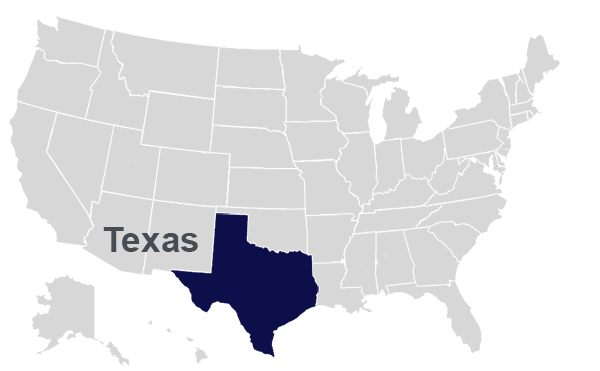Texas Equity Plan
In accordance with three sections of Title I, Part A, of the Elementary and Secondary Education (ESEA), each state education agency (SEA) is required to submit a plan to the U.S. Department of Education (ED) to ensure that all students have equal access to quality education, regardless of race, ethnicity, or family income. Texas has had an equity plan in place since 2005 and had made notable progress in closing equity gaps over the past decade. The 2015 Texas Equity Plan revised and updated the 2012 plan with input from stakeholders in light of new federal guidance as part of ED's "Excellent Educators for All" initiative. Year 4 work will focus on assisting the Texas Education Agency with plan implementation and building out supports for LEAs to develop local equity plans for the 2016–2017 school year.
Previous Work Updates
2016
July
The Texas Education Agency (TEA) convened the first meeting of the Local Education Agency (LEA) Equity Toolkit Stakeholders Steering Committee to assist the agency in designing a resource for districts to use when developing their own equity plans as required by Title I of the Every Student Succeeds Act (ESSA). TXCC helped plan and hosted the meeting as well as provided critical feedback on policy issues and project design.
June
No new update.
May
No new update.
April
No new update.
March
TXCC hosted and facilitated a first-ever meeting for 46 administrators and educators from 16 Education Excellence Innovation Program (EEIP) grantee sites in the state. The event leveraged the expertise of TXCC staff and staff from the Center on Great Teachers and Leaders at American Institutes for Research (AIR), who engaged with participants through general sessions, breakout sessions, problems of practice discussions, and targeted conversations with grantee teams on evaluation strategies and plans to support continuous improvement in the next program year.
February
TXCC staff collaborated with the Texas Education Agency (TEA) to plan a meeting in March for 16 district grantees of the Educator Excellence Innovation Program (EEIP) grant, which is referenced in the state equity plan as a support for the strategy of exploring opportunities for reward, recognition, and career advancement for teachers. TXCC also assisted TEA in revising a survey of EEIP grantees with the goal of improving the quality of data generated by districts and compiled by TEA.
January
TXCC staff twice met with staff of the Texas Education Agency (TEA) to discuss the Educator Excellence Innovation Program (EEIP) grant, which is referenced in the state equity plan as a support for the strategy of exploring opportunities for reward, recognition, and career advancement for teachers. This pilot program, which began in the spring of 2014, is designed to help districts systematically transform their human capital management systems by implementing comprehensive research-based strategies incorporating best practices in the areas of teacher recruitment, mentoring and induction, development, retention, and strategic compensation, including performance-based incentive pay. TXCC agreed to collaborate with TEA on this work by preparing for a meeting with the 17 EEIP district grantees in March, exploring options for grantee reporting, and revising the existing survey of grantees to capture information more beneficial to TEA and to the state equity plan.
2015
December
The U.S. Department of Education approved the Texas’ 2015 Equity Plan, which will allow the Texas Education Agency (TEA) to proceed with implementation activities in 2016. The plan, which was collaboratively developed by TEA and TXCC, focuses on five key strategies that build on the work that TEA and districts have already begun, including -Developing guidance and tools for districts to create and implement local equity plans; -Facilitating targeted training and professional development for teachers, including teacher candidates; -Exploring opportunities for reward, recognition, and career advancement for teachers; -Facilitating campus leader training and support; and Encouraging training of and support for mentors of novice teachers.
November
TXCC and the Southeast Comprehensive Center (SECC) co-hosted a regional institute for state education agency staff in Atlanta, Georgia, on the topic “Promoting Equitable Access at the State and Local Levels.” TXCC staff attended sessions with staff from the Texas Education Agency’s Division of Educator Leadership and Quality and jointly discussed ways to apply lessons learned from colleagues to the implementation of the Texas Equity Plan.
September
TXCC staff met with the TEA director of educator quality to review the status of the Texas Equity Plan implementation. TEA is still awaiting approval of its plan from the U.S. Department of Education (ED) but has continued work on a request for proposals (RFP) for developing an online equity toolkit for local education agencies. TEA plans on resuming regular meetings with the equity planning group following notice of the plan approval by ED.
August
The Texas Equity Plan is pending approval by the U.S. Department of Education (ED) in response to revisions submitted by the TEA director of educator quality. TEA approved the TXCC Year 4 plan to support this project, which will include development of an equity toolkit for local education agencies (LEAs), analysis of a grant program that involves teacher mentoring, assistance in identifying data sets and determining LEA reporting protocols, revisions to an existing survey on teacher mentoring, and creation of a communication plan for conducting outreach to LEAs and other stakeholders. In addition, TXCC and TEA staff collaborated to outline the components of a request for proposals (RFP) that the Agency will issue to select a contractor to develop the LEA equity toolkit.
June
The Equity Planning Group met at the Texas Education Agency (TEA) to review the equity plan development process, support the transition to a new TEA project lead, and outline next steps as the work moves into the implementation phase. TXCC staff also provided TEA with information from an Equitable Access Support System (EASN) webinar for technical assistance providers, which included updates on the review process by the U.S. Department of Education.
May
TXCC staff met multiple times with TEA to continue work on the 2015 Texas Equity Plan. This work included a virtual town hall meeting for stakeholders and TEA staff to solicit feedback on the proposed strategies and actions, develop graphical representations to illustrate key aspects of the plan, and edit and layout the final document which was submitted to the U.S. Department of Education on June 1.
April
The Equity Planning Group met four times during the month at the Texas Education Agency (TEA) to continue developing a draft equity plan for the state. TXCC staff assisted the Agency by designing a matrix to display stakeholder strategies with the highest likelihood for impact and feasibility; providing feedback on draft sections of the plan and writing the section related to data analysis; facilitating outreach to the Equitable Access Support Network (EASN) to request input on issues related to plan development; and developing Texas Equity Plan webpages for the TXCC website to allow TEA to share information about the project more broadly with stakeholders.
March
With assistance from TXCC and the Center for Great Teachers and Leaders (GTL), TEA convened two stakeholder meetings to gather input on issues related to the state’s educator equity plan. In early March, the Policy Stakeholders Group met in Austin to learn about the state’s equity plan requirements, discuss issues related to available data on equity gaps, identify potential root causes of gaps, and suggest strategies to improve equitable access to excellent teachers for minority and low-income students. Staff from the GTL center assisted with meeting facilitation, including root cause analysis and strategy generation. The Practitioners Stakeholder Group then met later in March to review additional data, engage in a root cause analysis process, and complete a protocol to prioritize strategies tied to key root causes. TXCC staff collaborated with TEA to develop agendas, processes, and protocols for both meetings; analyzed and presented data on educator equity gaps; and continued to participate in weekly meetings with the team to facilitate next steps for the project.
February
In early February, TXCC and TEA staff attended the Equitable Access meeting sponsored by the Council on Chief State School Officers and the Center for Great Teachers and Leaders. State teams from around the county attended this event, which included plenary sessions, breakout sessions, and meetings with experts to assist states in developing plans for equitable access to excellent teachers. In particular, TXCC arranged meetings with experts, gathered data from sessions, and brainstormed with TEA staff on key next steps. TXCC staff met five more times with TEA colleagues during the month to refine the planning process and prepare for a meeting with the Policy Stakeholders Group on March 9. With assistance from its partner, RMC Research Corporation, TXCC contributed to the meeting planning by developing a scan of policies and programs analyzing data on equity gaps, and collaboratively developing the agenda and presentation materials with TEA.





